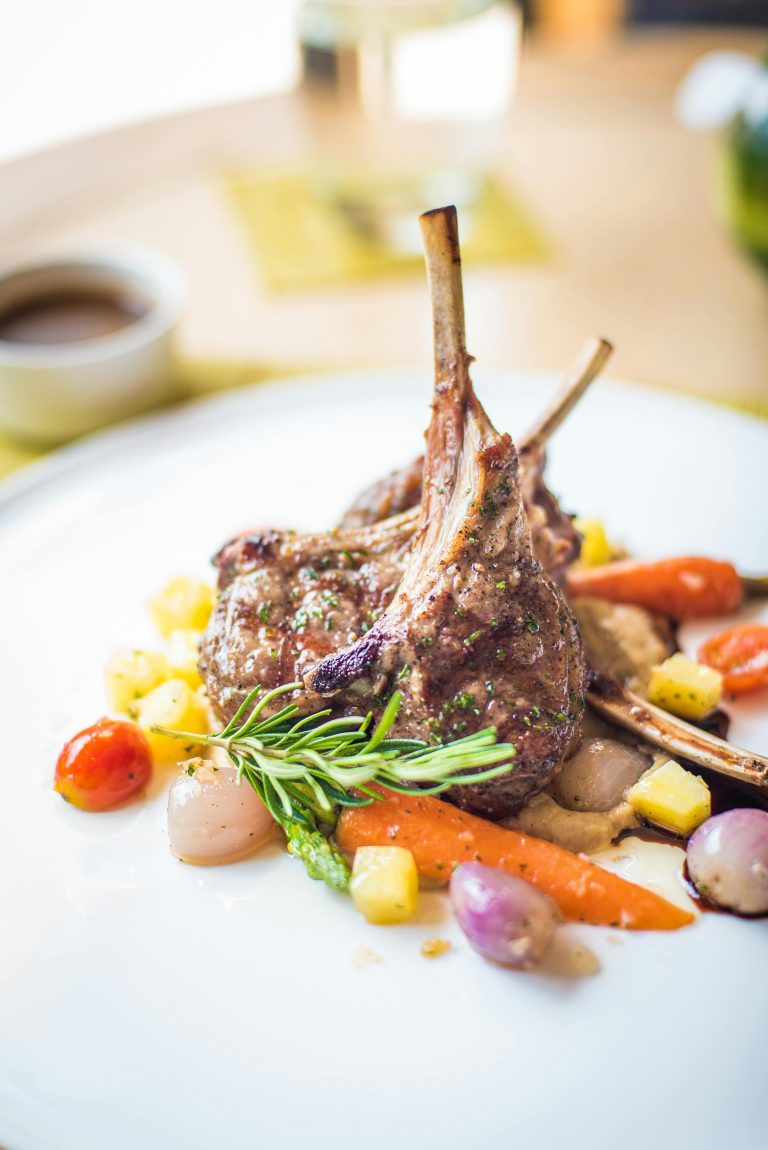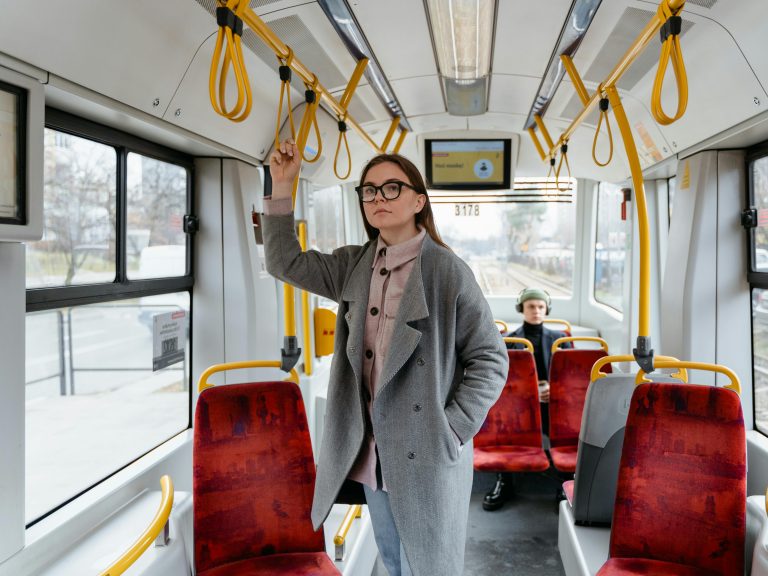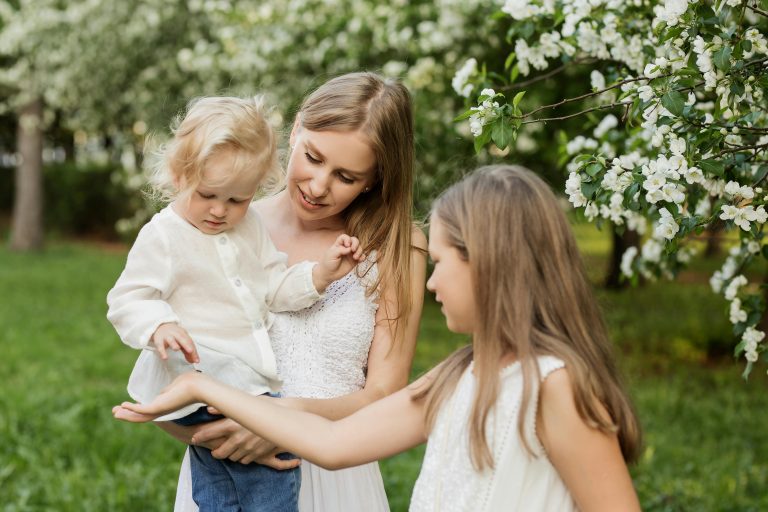How to download useful tools to conjugate avoir in the past compound (Passé Composé) tense in French
The passé composé (compound past) is an action or event completed in the past.
The action has just taken places and it has just ended: the consequence of this action is perceptible at the moment of speaking.
Charlotte est partie, she’s gone. She not here anymore.
Passé Composé is to compound as it is made up of two elements.
It is made up of the verb, to be or to have (être ou avoir) and the main verb, which expresses what action took place. (partir / to go)
Examples of Passé Composé :
J’ai mangé. I have eaten.
Je suis tombé. I have fallen down
Charlotte est partie. Charlotte is gone.
To make the compound past tense you take être or avoir in the present tense followed by the past participle of the verb.
Most compound past tense use avoir (to have). So it is necessary to revisit this much used well known verb avoir.
If you want to learn more about French conjugation and more particularly more about avoir in the past compound tense, click here to download our free French lesson.
A Spotlight on the verb Avoir at the past compound (Passé Composé) in French.
Here you are !
Welcome to our fabulous French lesson about the verb avoir and the compound past tense.
It may sound tricky to understand how this rule works. but do not be afraid, it is simpler than you think speaking French can be so easy.
First, remember this simple rule:
Like all compound conjugations, the passé composé may be subject to grammatical agreement.
- When the auxiliary verb is être, the past participle must agree with the subject
- When the auxiliary verb is avoir, the past participle may have to agree with its DIRECT OBJECT
This is the most important thing to know ! When you get this, you got it!
Now let’s take it further. You just need 3 steps to get it.
1. Avoir at the present tense
At the past compound (Passsé Composé) we conjugate Avoir at the present tense. So easy !
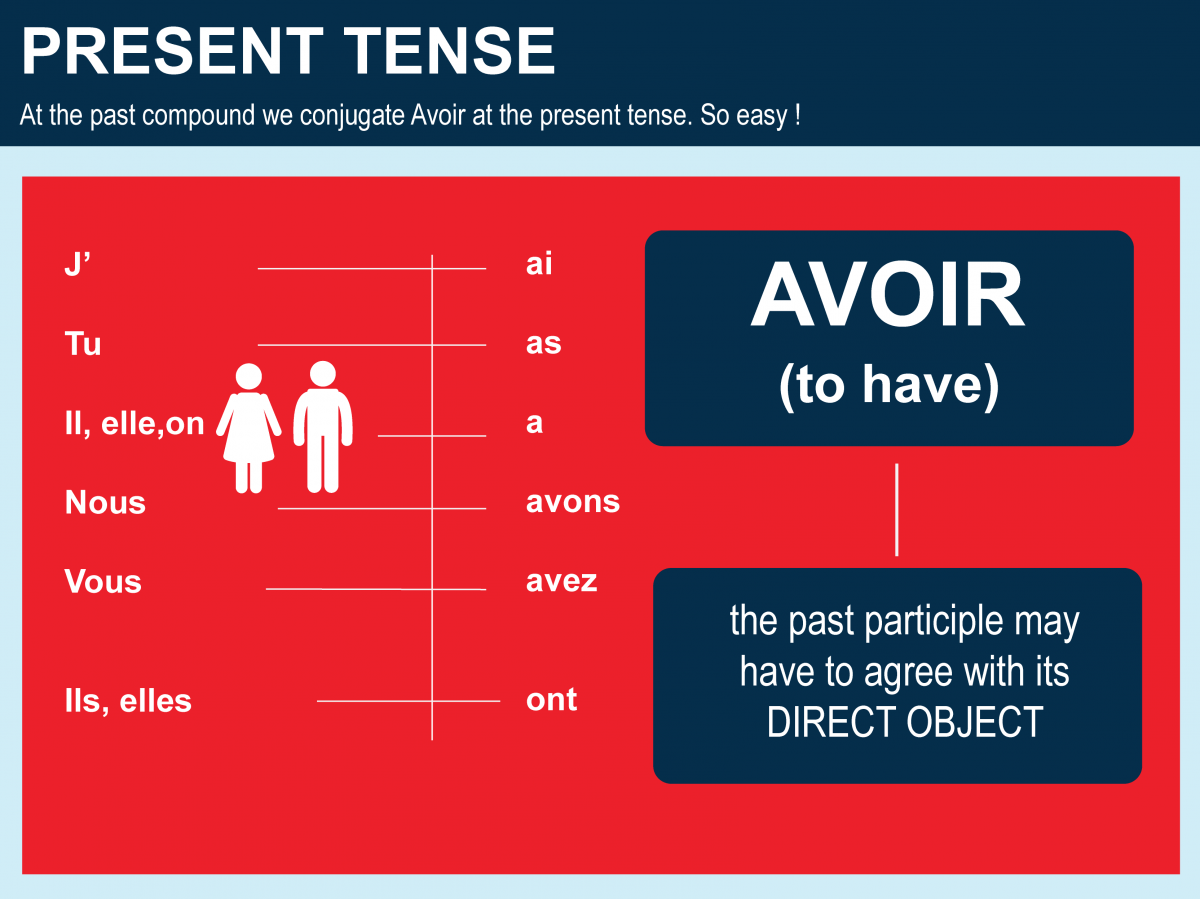
2. Past participle
To make your sentence at the compound past you just have to add the main verb. This one has to be conjugated at the past participle.
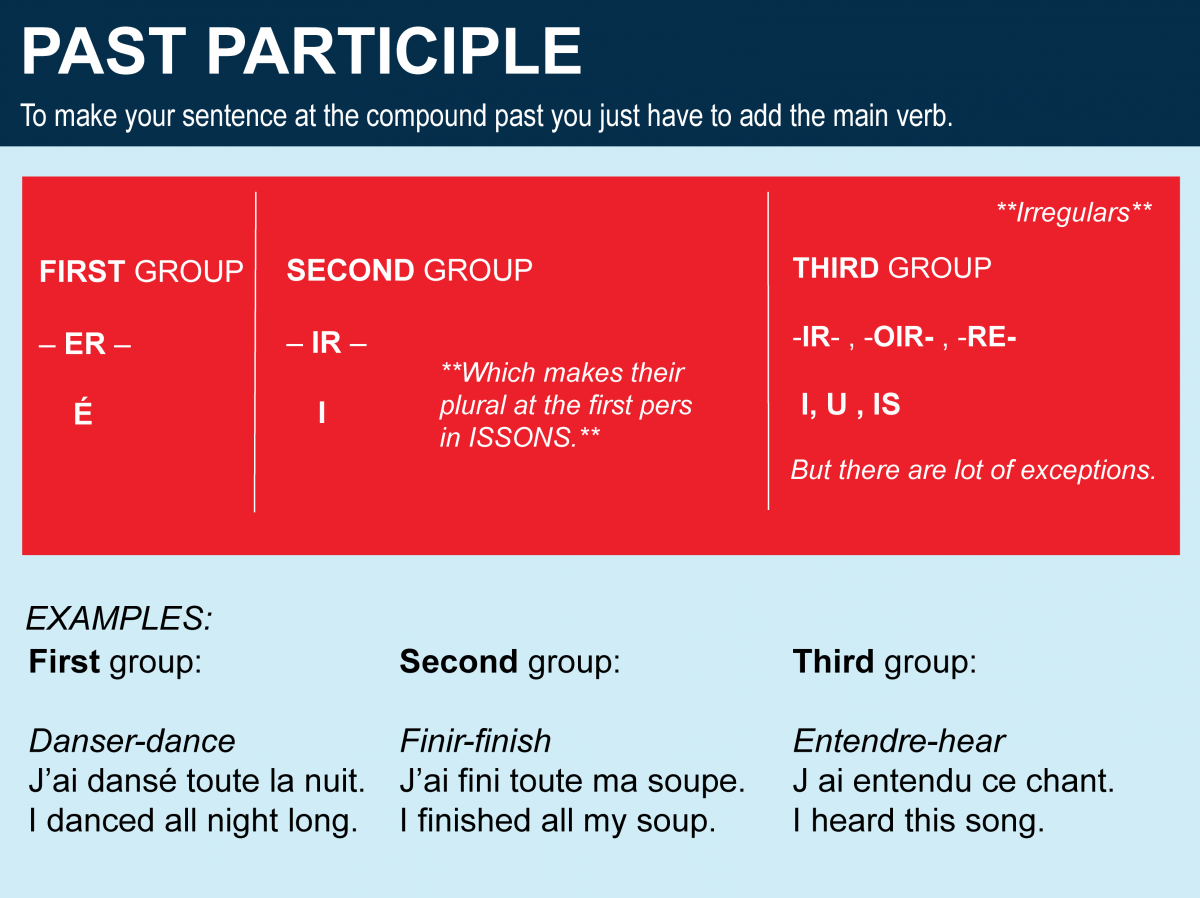
Let’s have a look at some simple examples and improve your French:
From the first group. The past participle is always é.
Partager-share
J’ai partagé un bon repas
I shared a good meal.
From the second group. The past participle is always i.
Réussir – do
J’ai réussi cet exercice
I did my exercise.
From the third group. The past participle changes.
Entendre-hear
Voir-see
Sortir- go out
Prendre-take
J’ai entendu ce chant.
J’ai vu ce film.
J’ai sorti le chien
J’ai pris mon temps.
I heard this song.
I saw this movie.
I walked the dog
I took my time.
3. Agreement
The most important thing to know is, with the compound past tense when conjugated with avoir agreement with the object pronoun occurs BEFORE the verb.
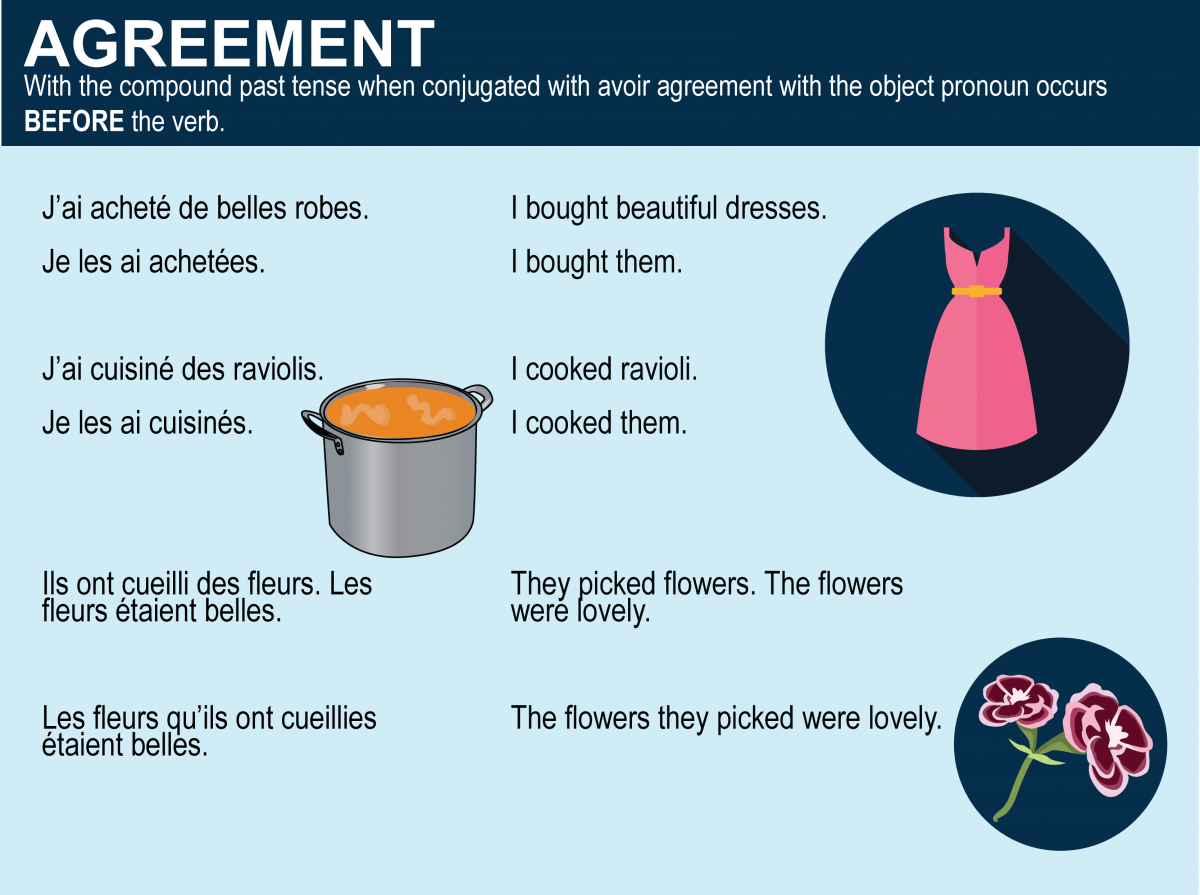
It seems crazy ! but it’s not. It’s easy.
Just look at these examples.
In English the sentence is :
John walked his two lovely dogs. John walked them.
In French:
John a sorti ses deux adorables chiens.
Il les a sortis.
In the first sentence, the verb doesn’t agree with the subject because it is conjugated with avoir. It does not agree with the direct object either because this one is placed after the verb. The direct object is “les adorables chiens”.
Whereas in the second sentence the direct object is placed before the verb.
“Les adorables chiens” has been replaced by “les” which is a direct object pronoun. So “sortir” has to agree with the direct object “les” which are the dogs.
I told you! it’s straightforward! Just to make sure you understand it properly, I give you more examples here and in no time you will speak fluently.
J’ai acheté de belles robes.
Je les ai achetées.
J’ai cuisiné des raviolis.
Je les ai cuisinés.
Ils ont cueilli des fleurs. Les fleurs étaient belles.
Les fleurs qu’ils ont cueillies étaient belles.
I bought beautiful dresses.
I bought them.
I cooked ravioli.
I cooked them.
They picked flowers. The flowers were lovely.
The flowers they picked were lovely.
Now the only way to get familiar with all of this, is to enrol in one of our terrific French conversation classes.
Do not hesitate and contact us now at French Lessons Australia.
We are here to help you improve your French


